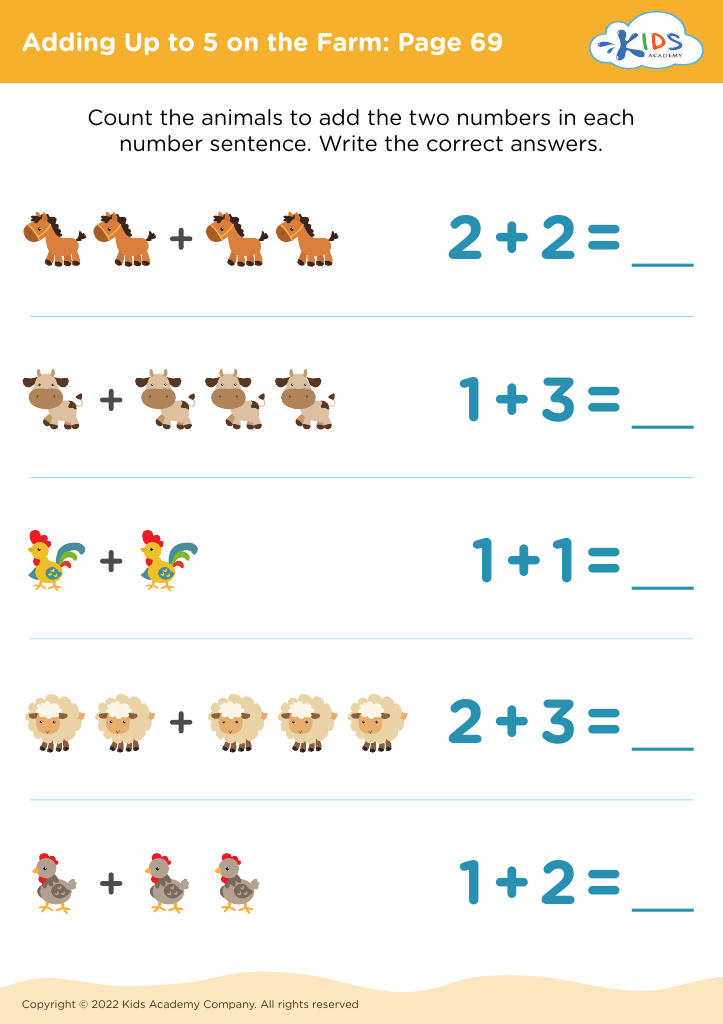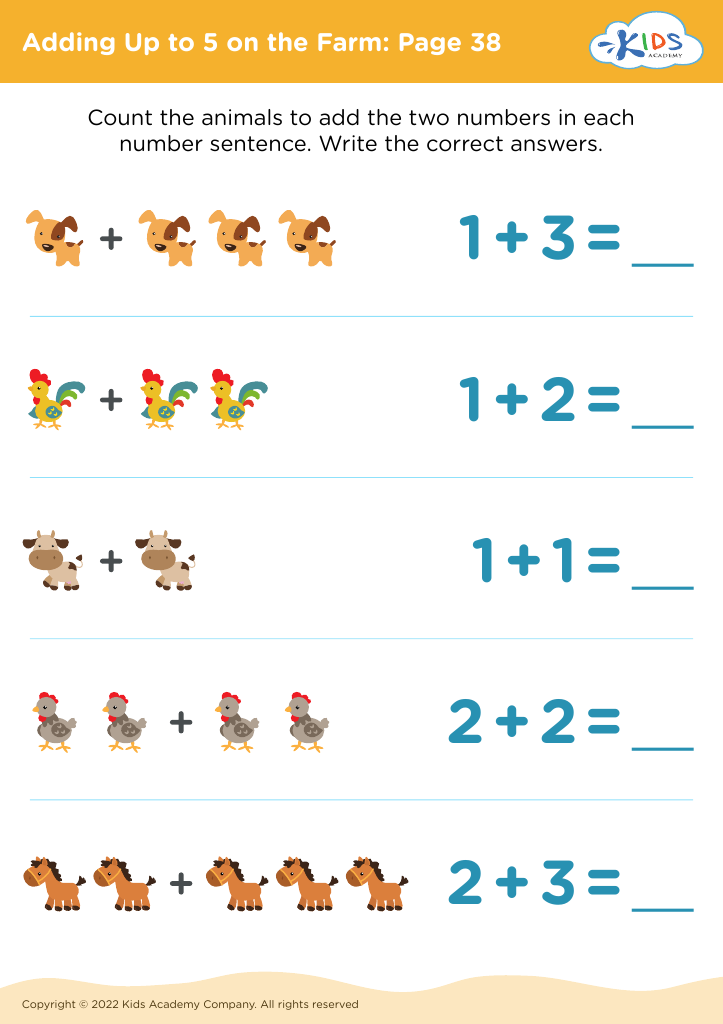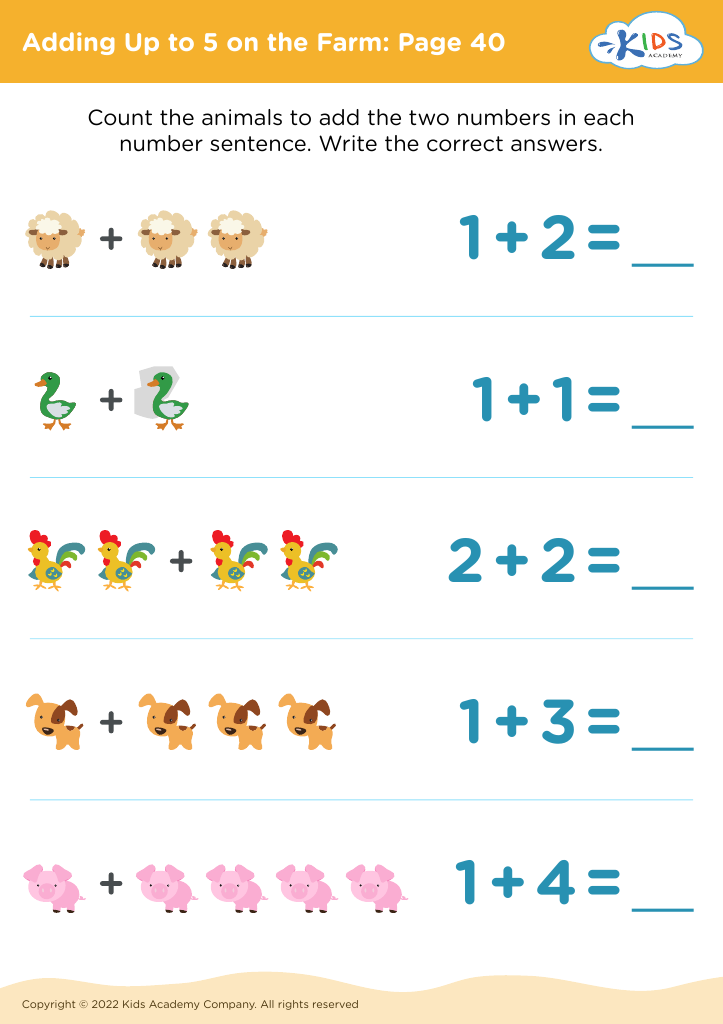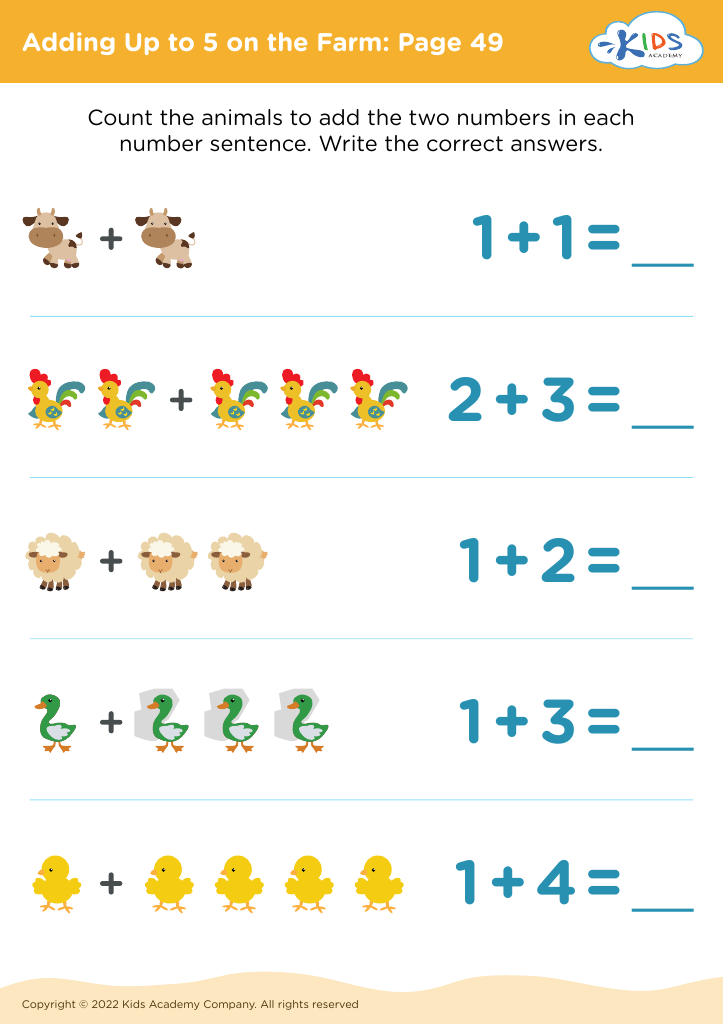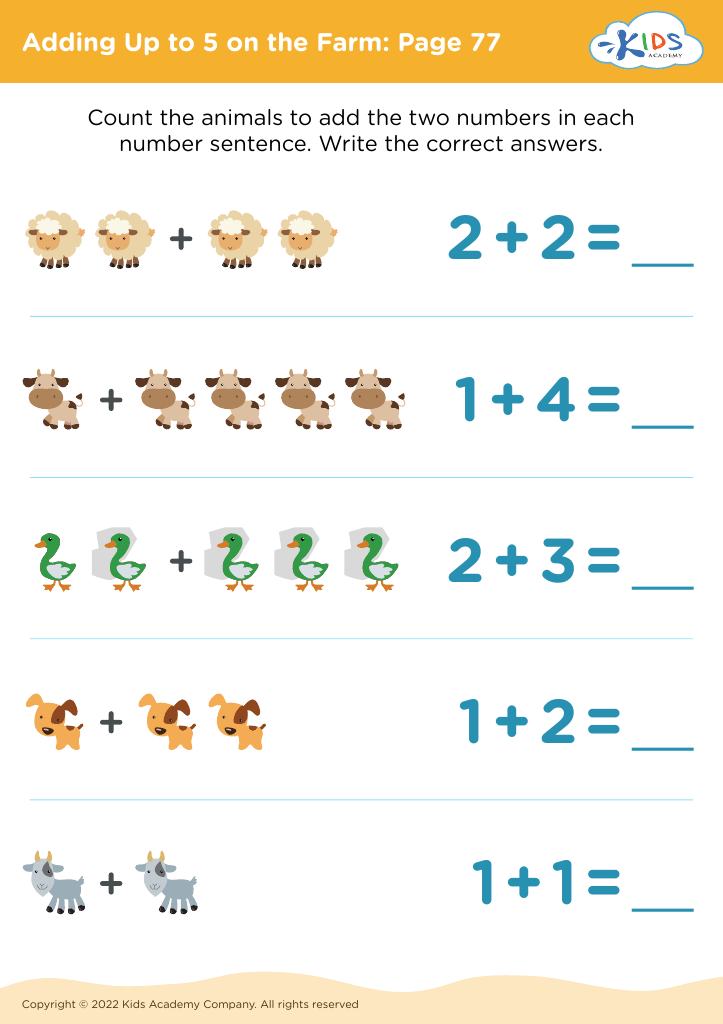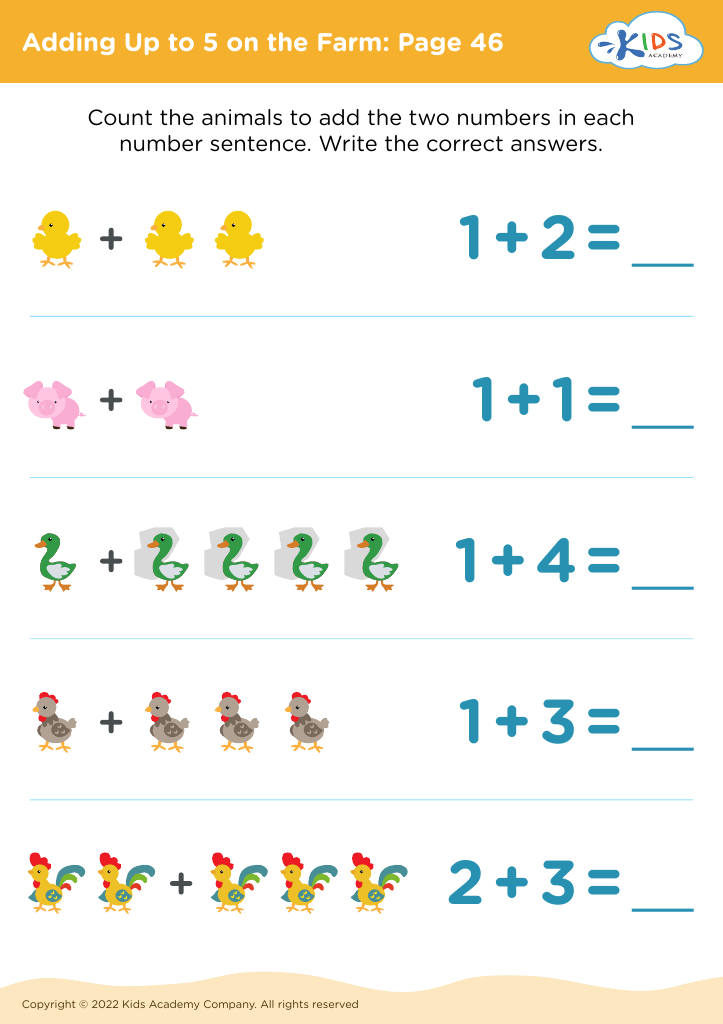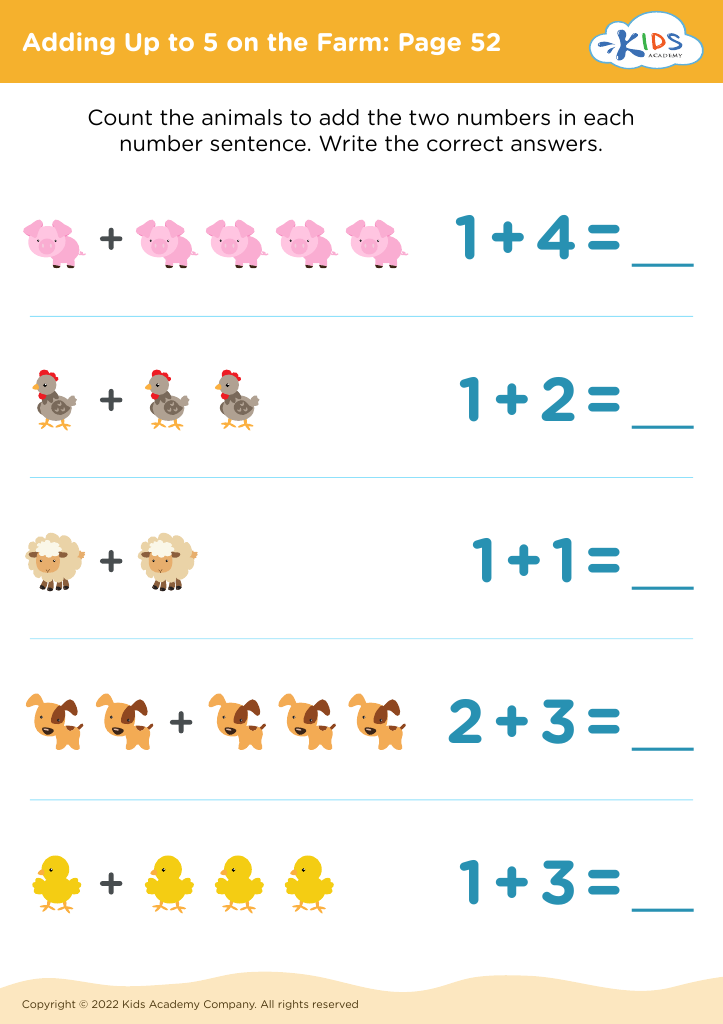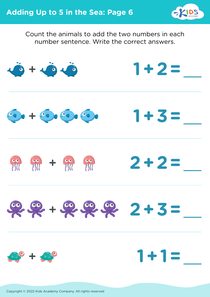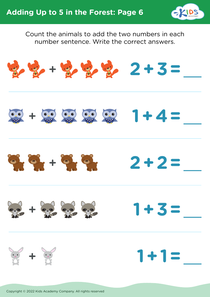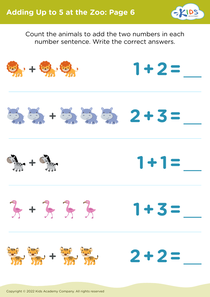Addition skills Adding on the Farm Worksheets for Ages 4-5
7 filtered results
-
From - To
Introduce your child to the world of numbers with our "Addition Skills: Adding on the Farm Worksheets for Ages 4-5" from Kids Academy. These interactive, farm-themed worksheets transform learning into an exciting adventure, making addition fun and engaging. Specially designed for preschoolers, each worksheet uses charming farm animals and familiar objects to teach simple addition in a relatable way. Parents and teachers will love how these resources support early math skill development, problem-solving abilities, and cognitive growth. Set your child on the path to arithmetic success with these delightful, educational printables today!
Parents and teachers should care about addition skills at an early age, such as those taught through activities like "Adding on the Farm," because foundational math skills are critical for cognitive development. For children ages 4-5, concepts of addition are more than just about numbers; they foster problem-solving abilities, logical thinking, and an understanding of relationships and patterns.
Using visual and tangible examples, like farm animals, plants, and produce, can make abstract ideas concrete for young minds. This contextual learning not only engages children but harmonizes with their natural curiosity. Studies have shown that early math skills are strong predictors of later academic success, more so even than early reading abilities.
Additionally, early exposure to addition helps build confidence and comfort with numbers, which can alleviate math anxiety in later years. Activities like "Adding on the Farm" also incorporate elements of play, making learning an enjoyable experience rather than a chore. This joy in discovery forms a positive association with mathematics from an early age.
Moreover, mastery of addition is a stepping stone for other mathematical concepts such as subtraction, multiplication, and division. Thus, fostering these skills prepares children for more complex math in the future, laying a solid groundwork for both academic and real-world success.
